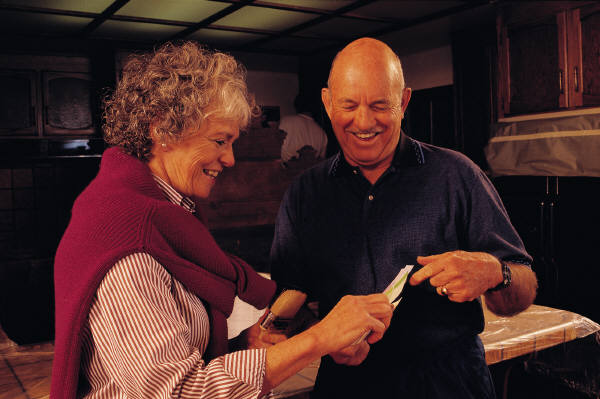As part of our ongoing series of case studies of best practices in volunteer engagement, we met Rabbi Brian Fink, Director of Engage at the JCC Manhattan to learn more about the work of the Engage Jewish Service Corps, which seeks to meaningfully engage volunteers in their 50s, 60s, and beyond in addressing vital community needs. The following case study is the result of that interview.
By Linda Puckett and Beth Steinhorn
UJA-Federation of New York’s Engage Jewish Service Corps empowers volunteers in their 50s, 60s, and beyond to address the needs of the Jewish community. Based in Manhattan and Brooklyn, this program offers an excellent example of how volunteers use their lifelong skill sets, expertise, passion, and leadership to address issues that they care deeply about, including poverty, hunger, joblessness, and the needs of the isolated elderly and people with special needs. Volunteers choose opportunities that fit their interests and availability or create opportunities of their own.
According to Rabbi Brian Fink, Director of Engage, this initiative has two primary goals. The first is to address pressing needs in the Jewish community. As a beneficiary agency of UJA-Federation of New York, Engage’s priorities align with those identified by UJA-Federation of NY, including poverty, hunger, elderly, the Russian Jewish community, and those with special needs. The second goal is to reach Boomers – those are recently retired, semi-retired, and those who say they will never retire – by engaging them as volunteers to meet these community needs. The idea is to create a community of baby boomer volunteers and supplement their volunteering with learning and community building opportunities. Volunteers meet together regularly in gatherings for discussion and reflection around these and other related social issues.
The initiative offers several types of volunteering. While individual volunteer opportunities exist, Rabbi Fink found that many potential volunteers want to roll up their sleeves and get things done together. Group experiences provide episodic volunteer opportunities for a core group of volunteers to meet and provide service on a monthly basis. For example, a small group of dedicated volunteers interviews community members and then create stories that are posted on the Engage Jewish Service Corps blog. Volunteer teams are also encouraged to develop their own projects to serve agencies in their community. One recent project involved teams of two volunteers visiting different sites to interview elders and create a memory book. This project provided skill building opportunities as volunteers learned how to use digital voice recorders and edit videos, while also creating lasting gift for the elders.
The initiative also provides leadership development opportunities through group leader roles. Specifically, volunteers are encouraged to think entrepreneurially about what interests them and, if it’s within the mission of Engage, they are empowered and supported to run the project. Rabbi Fink says the Engage initiative is critical in terms of capacity building. He and a part-time community organizer staff the initiative but volunteers are the driving force that keeps things going and, without volunteer group leaders, they could not have the impact that the program creates.
Engage Jewish Service Corps is appealing to Boomers who are at a point in their lives where they are asking, “Who am I?” and “what do I want to do next?” For many, Engage offers opportunities for meaningful service along with skill and leadership development that are very appealing to the 50+ crowd.
For more information, visit JCC Manhattan’s Engage Program or UJA Federation of New York.

